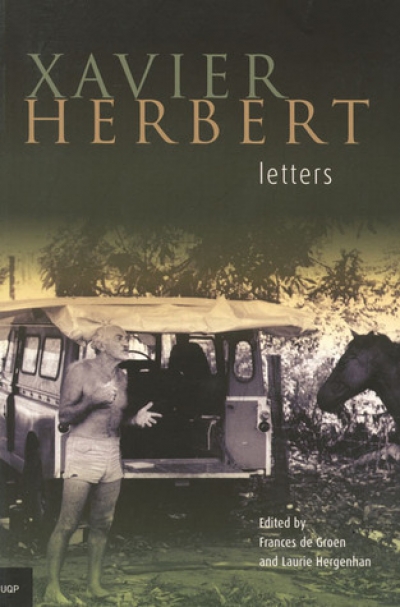Xavier Herbert
Baz Luhrmann’s epic film Australia may not have won any Oscars or attracted hordes of overseas tourists, but it has had at least one positive outcome. HarperCollins reissued Xavier Herbert’s equally epic Capricornia (1938), one of many acknowledged influences on the film, another being Herbert’s even longer novel, Poor Fellow My Country (1975). While visiting New Zealand recently, I was delighted to see the handsome new edition of one of Australia’s greatest novels prominently displayed in bookshops.
... (read more)Xavier Herbert: Letters edited by Frances de Groen and Laurie Hergenhan
by Jacqueline Kent •
Xavier Herbert: Letters edited by Frances de Groen and Laurie Hergenhan
by Jacqueline Kent •
Xavier Herbert’s Capricornia and Poor Fellow My Country by John McLaren
by Russel McDougall •




